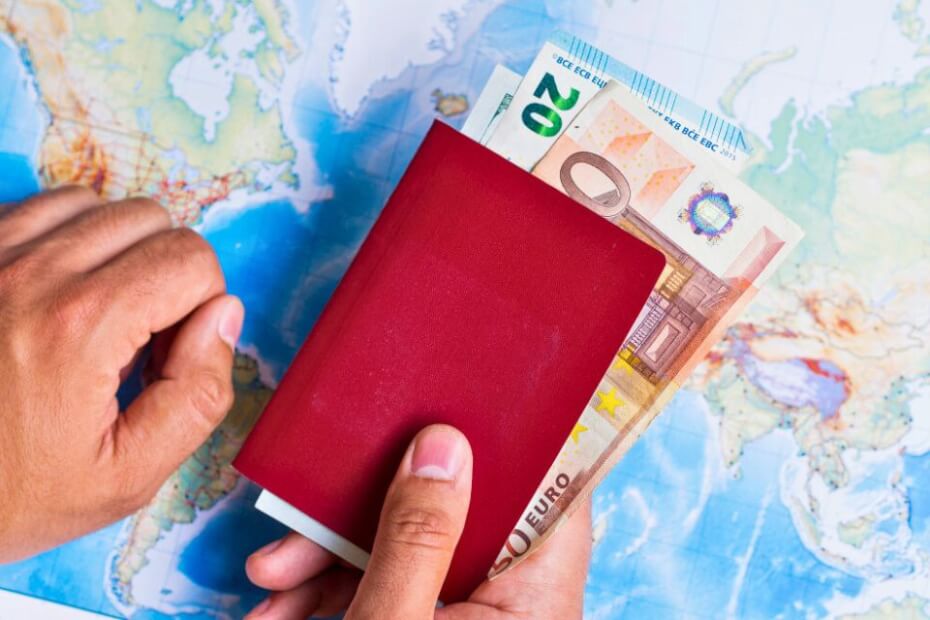
Travelers may soon need to pay more for short-stay visit visas for Europe’s Schengen Area.
The European Commission submitted a proposition to increase the cost of Schengen visa applications.
A Schengen visa is a short-stay permit allowing travel within the Schengen area for up to 90 days within 180 days.
The Schengen area comprises 27 European Union (EU) member states and country neighbors Switzerland, Norway, Iceland, and Liechtenstein, which have abolished internal border controls.
The Commission also recommended to hike the visa fees even more for countries showing “insufficient cooperation on readmission.”
Readmission pertains to accepting individuals who have been expelled from member states and are seeking re-entry.
Additionally, the Commission said external Schengen visa service providers will be allowed to charge a higher fee.
How much is the increase in Schengen visa fees?
The Commission proposed that Schengen visa fees be increased from €80 to €90 for adults and from €40 to €45 for children.
For countries that are uncooperative in receiving expelled citizens back from member states, the visa fees would increase from €120 to €135 and from €160 to €180.
The proposed higher fees will also affect the maximum amount external providers can collect for visa applications on behalf of the member states.
Typically, they charge up to half the standard fee. This amount would increase from €40 to €45.
Meanwhile, the Schengen visa fee for extensions will remain at €30.
Why the EU is raising short-stay visa fees
The EU Commission assesses the need for new fees every three years, considering an “objective criteria.”
It cited the “union-wide inflation rate and developments in salaries of Member States’ civil servants” as the reason for this year’s increase.
According to the draft, Schengen member state experts discussed revising visa fees in a meeting last December 2023.
It reported that an “overwhelming majority” supported the Schengen visa fee hike.
The Commission presented the draft on 2 February and will be open to feedback until 1 March 2024.
Afterwhich, it can then adopt the regulation, which will come into force 20 days after publication in the Official Journal of the European Union.
Cost of visit visa applications in other countries
The European Commission said the proposed increased Schengen visa fees are “still relatively low” compared to other countries.
The fee for the most common nonimmigrant US visa types, including tourist, business, student, and exchange visas, is US$185.
In Canada, a visit visa will cost a traveler CA$100 plus $85 for biometrics, while Australia charges AU$190.
The United Kingdom (UK) had also increased visa fees in 2023. A Standard Visitor visa now costs GB£115.
The British government also raised other visa fees, with work and other visas up 15%, family visas, settlement, and citizenship up 20%, and student visas up 35%.
Visa applicants in the UK must also pay an increased immigration health surcharge (IHS) enforced in February this year.
Online Schengen visa applications
In December 2023, the EU adopted the new legislation for digitizing the Schengen visa application process.
This will facilitate the transition to the new Schengen visa application platform, the European Union Visa Application Platform (EU VAP), in 2026.
With the EU VAP, only first-time applicants, those with faulty biometric data, and those with new travel documents will be required to attend in-person appointments.
All the other visa applicants can use the EU VAP to complete the application, answer travel-related questions, and upload the required documents.
They can also pay Schengen visa fees online through an EU VAP-linked gateway.
The platform will automatically forward visa applications to relevant member countries for processing and transfer payments accordingly.
If electronic online payment isn’t possible, consulates or authorized visa centers can collect the fees.
Travelers will also be updated electronically on their visa status.
Travel permit costs for non-visa nationals
The EU is also implementing a new electronic travel permit system for non-visa nationals.
The EU is launching the European Travel Information Authorization System (ETIAS) in two phases starting mid-2025.
Foreign nationals who do not require a visa for short trips to the EU’s Schengen Area will need an ETIAS before their travel. This includes UK citizens.
The ETIAS is similar to the UK’s new Electronic Travel Authorization (UK ETA) for visa-exempt nationals, which includes EU citizens.
An ETIAS application will cost €7 each and will be valid for three years. On the other hand, the UK ETA costs £10 to apply and will be valid for two years.

